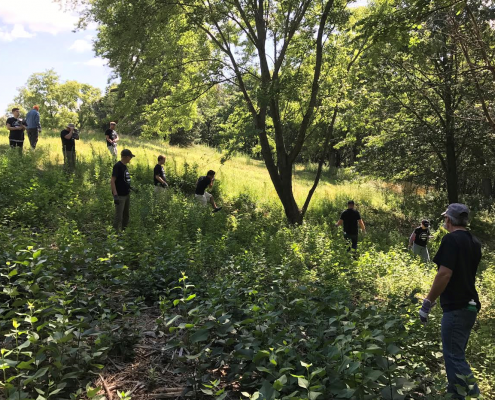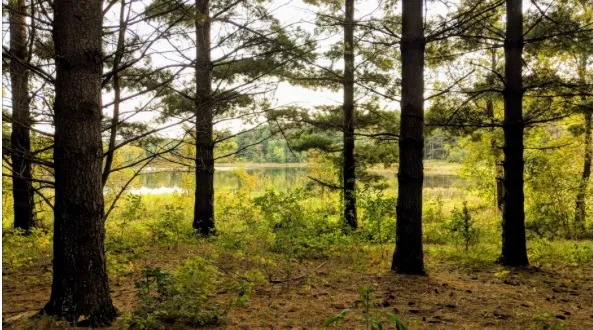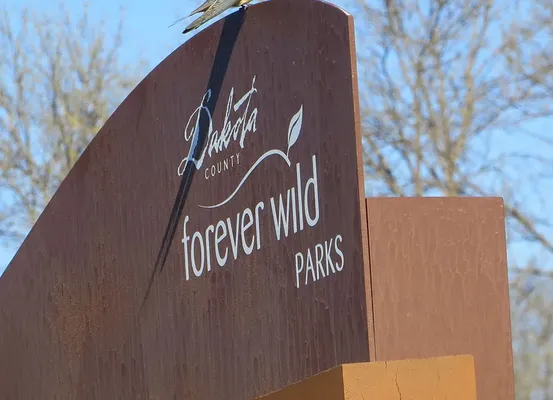
Preserving Urban Natural Areas for Future Generations
We are a dedicated team committed to preserving and enhancing urban natural areas for ourselves and future generations.
Stay Informed
Joining our email list is the best way to stay informed and learn about pending decisions on issues that may impact the future of Lebanon Hills and other urban natural areas, and how you can take action.
By subscribing, you agree to receive our newsletter. You can unsubscribe at any time.
Get Involved
Protecting urban wild spaces starts with you!
Every voice and every action counts for preserving our natural environment for future generations. Here are some ways you can make an impact.






Volunteer with Wilderness in the City
We're growing! And we appreciate those who can offer their time to support our work.
Put your passion for protecting our urban natural spaces to work! Whatever your talents, we have a role for you:
Engage with country officials and park staff to promote natural resource stewardship.
Share our mission and connect with the community at events.
Support our work through grant writing and donor engagement.
Craft compelling content for newsletters, social media and our website.
Volunteer in the Park
Join Dakota County's volunteer team to participate in natural resourced events such as:
Contact Information:
Garrett Zaffke, Dakota County Volunteer Coordinator
Support Our Mission
Your contribution helps preserve urban wilderness for future generations
Why Your Support Matters
Your contribution is vitally important to the work we do to preserve Lebanon Hills Regional Park and other urban natural areas for ourselves and future generations.
Member Benefits
- Quarterly newsletter and timely notices
- Voting eligibility at annual meetings
- Tax-deductible contributions (501c3 non-profit)

Our Story
Founded in response to development plans that would have altered Lebanon Hills Regional Park, we continue our mission of preserving wilderness spaces in urban areas.
2012Master Plan Update Initiated
The Dakota County Board determined a new Master Plan was needed for Lebanon Hills, aligning with the 2008 Park System Plan, which proposed a paved trail through the park.
2013Wilderness in the City Founded
In response to the proposed trail plan, Holly Jenkins and Maryann Passe founded Wilderness in the City in May as a grassroots organization to protect Lebanon Hills.
2013Draft Plan Released
In November, the County released its draft plan, met with strong public opposition. Wilderness in the City began advocacy efforts to protect the park’s natural environment.
2014501(c)3 Nonprofit Status
Wilderness in the City became an official nonprofit in September, strengthening its ability to inform and advocate for ecological stewardship and low-impact access.
2014Citizen Advisory Panel Formed
In February, the Board responded to opposition by creating the Lebanon Hills Citizen Advisory Panel to review and improve the draft plan.
2015Public Opposition Peaks
In January, 600+ comments were submitted opposing the revised plan—97% against the paved trail connector.
2015Master Plan Approved
Despite strong opposition, the Board approved a revised plan in March that removed the trail connector from the Greenway network.
2015Met Council Adoption
In August, the Metropolitan Council formally adopted the $27 million 2015 Master Plan. Concerns over citizen involvement and ecological impact were left unaddressed.
2025Continuing the Mission
Wilderness in the City continues to protect Lebanon Hills and advocate for the preservation of urban wilderness areas.
From our grassroots beginning to our current role as a leading voice in urban wilderness preservation, we remain committed to protecting natural spaces for future generations.

